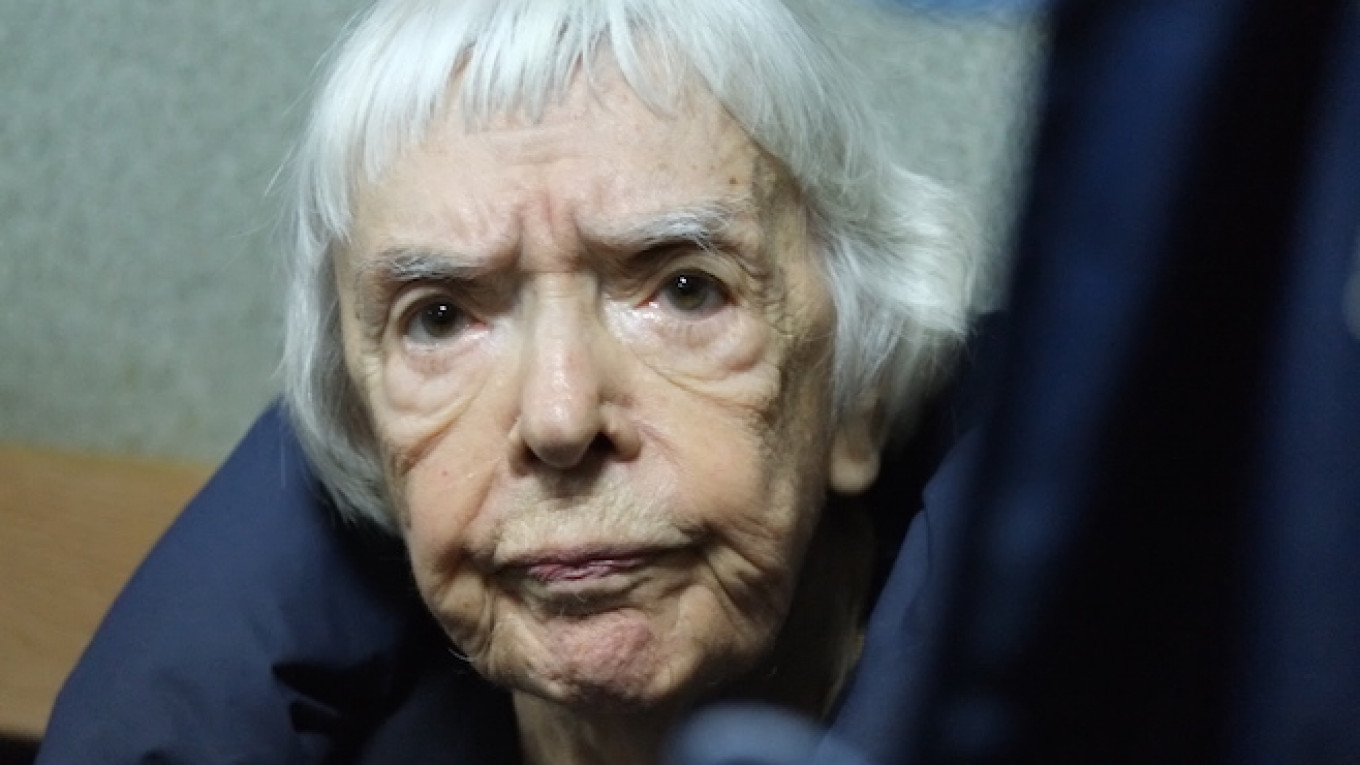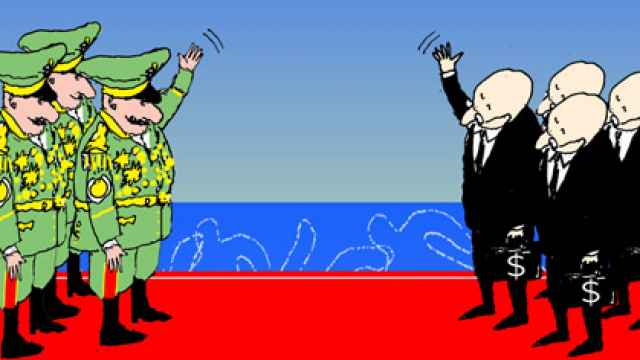One of Russia's best-known human rights advocates and the founder of the Moscow Helsinki Group, Lyudmila Alexeyeva, has rejoined the Kremlin's human rights council, saying she intended to look into the persecution of nongovernmental organizations under the country's "foreign agents" law.
President Vladimir Putin signed a decree Tuesday appointing Alexeyeva to the panel, according to a document published on the government's website.
Alexeyeva — who left the Presidential Council for Civil Society and Human Rights in 2012 to protest the opaque selection process of new members — welcomed her reappointment as "pleasant news," the Russian News Service reported.
The rights activist had previously turned down a number of invitations to rejoin the council. But recently the panel had submitted a request to Putin to reappoint her, Kremlin spokesman Dmitry Peskov said last week, adding that the "president has given his consent to it," news agency TASS reported.
See also: Biography of Lyudmila Alexeyeva
Alexeyeva said that her work on the panel would include "above all, research into the practice of the application of the law on foreign agents against various NGOs," RIA Novosti reported.
"All hell has broken loose in the regions: They [the authorities] are simply settling scores with organizations that are unfavorable to them, stripping them this way of their right to operate," she said. "This is the question I want to raise."
The law requiring nongovernmental organizations to register as "foreign agents" if they receive funding from abroad and engage in vaguely defined political activity has drawn much criticism in Russia and abroad, especially after the Justice Ministry applied the label to an array of respected human rights groups that have criticized the government.
The law also requires groups that carry that label to identify themselves in any publications as "foreign agents" — a phrase that was widely used during the Soviet era to mean a spy.
Justice Minister Alexander Konovalov denied that the law puts any pressure on NGOs and said that it does not create any restrictions, according to an interview with business daily Kommersant published Wednesday.
But the implementation of the law has reportedly drawn some skepticism from Putin after the Justice Ministry applied the label this week to the Dynasty Foundation, a group that supports science and education and provides scholarships to the nation's young researchers.
At a closed-door meeting with Russia's business leaders Tuesday, Putin conceded that registering Dynasty as a "foreign agent" might require some looking into, news site RBC reported, citing three unidentified participants in the meeting. Kremlin spokesman Peskov had earlier said that the letter of the law was observed in the Dynasty case.
Alexeyeva said she wanted to "draw the attention of the presidential [human rights] council to the practice of listing NGOs as foreign agents — there are such outrageous things happening there," the Russian News Service reported.
A renowned rights advocate in Russia and overseas, Alexeyeva, 87, was the only Russian civil activist to meet with U.S. Assistant Secretary of State Victoria Nuland during the American diplomat's visit to Moscow last week, RBC reported at that time. The topics of discussion included concerns about the "foreign agents" law, the report said.
On the presidential human rights council Alexeyeva also plans to look into the operations of Russia's court and prison systems, the activist said, RIA Novosti reported.
"Our courts have very much discredited themselves in the eyes of citizens with their incompetence," Alexeyeva was quoted as saying, adding that she would also join the council's "task force" for monitoring prisons "because there are very many violations of human rights against inmates."
Contact the author at [email protected]
A Message from The Moscow Times:
Dear readers,
We are facing unprecedented challenges. Russia's Prosecutor General's Office has designated The Moscow Times as an "undesirable" organization, criminalizing our work and putting our staff at risk of prosecution. This follows our earlier unjust labeling as a "foreign agent."
These actions are direct attempts to silence independent journalism in Russia. The authorities claim our work "discredits the decisions of the Russian leadership." We see things differently: we strive to provide accurate, unbiased reporting on Russia.
We, the journalists of The Moscow Times, refuse to be silenced. But to continue our work, we need your help.
Your support, no matter how small, makes a world of difference. If you can, please support us monthly starting from just $2. It's quick to set up, and every contribution makes a significant impact.
By supporting The Moscow Times, you're defending open, independent journalism in the face of repression. Thank you for standing with us.
Remind me later.






